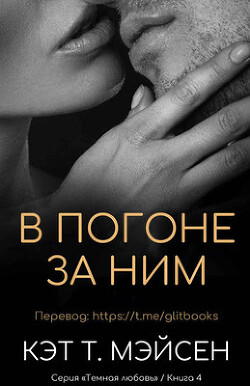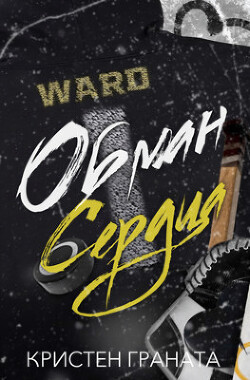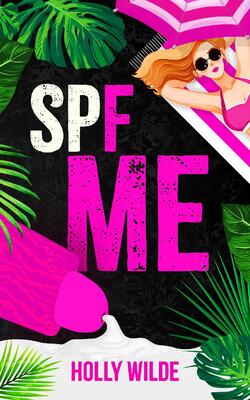Anthony Trollope - Autobiography of Anthony Trollope

Помощь проекту
Autobiography of Anthony Trollope читать книгу онлайн
the fabrication of love-stories. The hunting, I thought, must soon
go, and I would not therefore allow that to keep me in the country.
And then, why should I live at Waltham Cross now, seeing that
I had fixed on that place in reference to the Post Office? It was
therefore determined that we would flit, and as we were to be away
for eighteen months, we determined also to sell our furniture. So
there was a packing up, with many tears, and consultations as to
what should be saved out of the things we loved.
As must take place on such an occasion, there was some heart-felt
grief. But the thing was done, and orders were given for the letting
or sale of the house. I may as well say here that it never was let
and that it remained unoccupied for two years before it was sold.
I lost by the transaction about (pounds)800. As I continually hear that
other men make money by buying and selling houses, I presume I am
not well adapted for transactions of that sort. I have never made
money by selling anything except a manuscript. In matters of
horseflesh I am so inefficient that I have generally given away
horses that I have not wanted.
When we started from Liverpool, in May, 1871, Ralph the Heir was
running through the St. Paul's. This was the novel of which Charles
Reade afterwards took the plot and made on it a play. I have always
thought it to be one of the worst novels I have written, and almost
to have justified that dictum that a novelist after fifty should
not write love-stories. It was in part a political novel; and
that part which appertains to politics, and which recounts the
electioneering experiences of the candidates at Percycross, is well
enough. Percycross and Beverley were, of course, one and the same
place. Neefit, the breeches-maker, and his daughter, are also good
in their way,--and Moggs, the daughter's lover, who was not only
lover, but also one of the candidates at Percycross as well. But
the main thread of the story,--that which tells of the doings of the
young gentlemen and young ladies,--the heroes and the heroines,--is
not good. Ralph the heir has not much life about him; while Ralph
who is not the heir, but is intended to be the real hero, has
none. The same may be said of the young ladies,--of whom one, she
who was meant to be the chief, has passed utterly out of my mind,
without leaving a trace of remembrance behind.
I also left in the hands of the editor of The Fortnightly, ready for
production on the 1st of July following, a story called The Eustace
Diamonds. In that I think that my friend's dictum was disproved.
There is not much love in it; but what there is, is good. The
character of Lucy Morris is pretty; and her love is as genuine and
as well told as that of Lucy Robarts of Lily Dale.
But The Eustace Diamonds achieved the success which it certainly
did attain, not as a love-story, but as a record of a cunning little
woman of pseudo-fashion, to whom, in her cunning, there came a
series of adventures, unpleasant enough in themselves, but pleasant
to the reader. As I wrote the book, the idea constantly presented
itself to me that Lizzie Eustace was but a second Becky Sharpe; but
in planning the character I had not thought of this, and I believe
that Lizzie would have been just as she is though Becky Sharpe had
never been described. The plot of the diamond necklace is, I think,
well arranged, though it produced itself without any forethought.
I had no idea of setting thieves after the bauble till I had got
my heroine to bed in the inn at Carlisle; nor of the disappointment
of the thieves, till Lizzie had been wakened in the morning with
the news that her door had been broken open. All these things, and
many more, Wilkie Collins would have arranged before with infinite
labour, preparing things present so that they should fit in with
things to come. I have gone on the very much easier plan of making
everything as it comes fit in with what has gone before. At any
rate, the book was a success, and did much to repair the injury
which I felt had come to my reputation in the novel-market by the
works of the last few years. I doubt whether I had written anything
so successful as The Eustace Diamonds. since The Small House at
Allington. I had written what was much better,--as, for instance,
Phineas Finn and Nina Balatka; but that is by no means the same
thing.
I also left behind, in a strong box, the manuscript of Phineas Redux,
a novel of which I have already spoken, and which I subsequently
sold to the proprietors of the Graphic newspaper. The editor of
that paper greatly disliked the title, assuring me that the public
would take Redux for the gentleman's surname,--and was dissatisfied
with me when I replied that I had no objection to them doing
so. The introduction of a Latin word, or of a word from any other
language, into the title of an English novel is undoubtedly in
bad taste; but after turning the matter much over in my own mind,
I could find no other suitable name.
I also left behind me, in the same strong box, another novel, called
An Eye for an Eye, which then had been some time written, and of
which, as it has not even yet been published, I will not further
speak. It will probably be published some day, though, looking
forward, I can see no room for it, at any rate, for the next two
years.
If therefore the Great Britain, in which we sailed for Melbourne,
had gone to the bottom, I had so provided that there would be new
novels ready to come out under my name for some years to come. This
consideration, however, did not keep me idle while I was at sea.
When making long journeys, I have always succeeded in getting
a desk put up in my cabin, and this was done ready for me in the
Great Britain, so that I could go to work the day after we left
Liverpool. This I did; and before I reached Melbourne I had finished
a story called Lady Anna. Every word of this was written at sea,
during the two months required for our voyage, and was done day by
day--with the intermission of one day's illness--for eight weeks,
at the rate of 66 pages of manuscript in each week, every page of
manuscript containing 250 words. Every word was counted. I have
seen work come back to an author from the press with terrible
deficiencies as to the amount supplied. Thirty-two pages have
perhaps been wanted for a number, and the printers with all their
art could not stretch the matter to more than twenty-eight or -nine!
The work of filling up must be very dreadful. I have sometimes been
ridiculed for the methodical details of my business. But by these
contrivances I have been preserved from many troubles; and I have
saved others with whom I have worked--editors, publishers, and
printers--from much trouble also.
A month or two after my return home, Lady Anna appeared in The
Fortnightly, following The Eustace Diamonds. In it a young girl,
who is really a lady of high rank and great wealth, though in her
youth she enjoyed none of the privileges of wealth or rank, marries
a tailor who had been good to her, and whom she had loved when she
was poor and neglected. A fine young noble lover is provided for
her, and all the charms of sweet living with nice people are thrown
in her way, in order that she may be made to give up the tailor.
And the charms are very powerful with her. But the feeling that
she is bound by her troth to the man who had always been true to
her overcomes everything,--and she marries the tailor. It was my
wish of course to justify her in doing so, and to carry my readers
along with me in my sympathy with her. But everybody found fault
with me for marrying her to the tailor. What would they have said
if I had allowed her to jilt the tailor and marry the good-looking
young lord? How much louder, then, would have been the censure!
The book was read, and I was satisfied. If I had not told my story
well, there would have been no feeling in favour of the young lord.
The horror which was expressed to me at the evil thing I had done,
in giving the girl to the tailor, was the strongest testimony I
could receive of the merits of the story.
I went to Australia chiefly in order that I might see my son among
his sheep. I did see him among his sheep, and remained with him for
four or five very happy weeks. He was not making money, nor has he
made money since. I grieve to say that several thousands of pounds
which I had squeezed out of the pockets of perhaps too liberal
publishers have been lost on the venture. But I rejoice to say
that this has been in no way due to any fault of his. I never knew
a man work with more persistent honesty at his trade than he has
done.
I had, however, the further intentions of writing a book about the
entire group of Australasian Colonies; and in order that I might
be enabled to do that with sufficient information, I visited them
all. Making my headquarters at Melbourne, I went to Queensland, New
South Wales, Tasmania, then to the very little known territory of
Western Australia, and then, last of all, to New Zealand. I was
absent in all eighteen months, and think that I did succeed in
learning much of the political, social, and material condition of
these countries. I wrote my book as I was travelling and brought
it back with me to England all but completed in December, 1872.
It was a better book than that which I had written eleven years
before on the American States, but not so good as that on the West
Indies in 1859. As regards the information given, there was much
more to be said about Australia than the West Indies. Very much
more is said,--and very much more may be learned from the latter
than from the former book. I am sure that any one who will take
the trouble to read the book on Australia, will learn much from
it. But the West Indian volume was readable. I am not sure that
either of the other works are, in the proper sense of that word.
When I go back to them I find that the pages drag with me;--and if
so with me, how must it be with others who have none of that love
which a father feels even for his ill-favoured offspring. Of all
the needs a book has the chief need is that it be readable.
Feeling that these volumes on Australia were dull and long, I was
surprised to find that they had an extensive sale. There were, I
think, 2000 copies circulated of the first expensive edition; and























